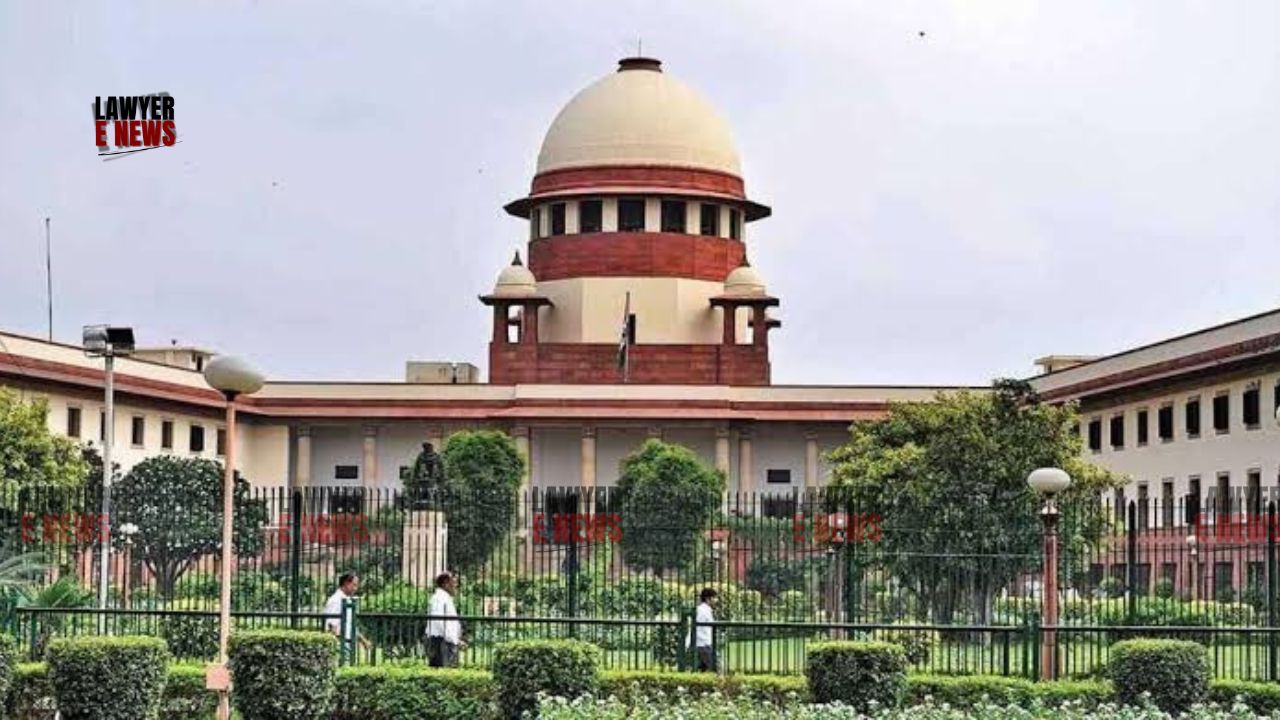-
by Admin
15 February 2026 5:35 AM



High Court Erred in Ordering Retrial Despite Admission of Documents Under Section 294 CrPC, Supreme Court. On October 21, 2024, the Supreme Court of India, in the case of Shyam Narayan Ram v. State of U.P. & Anr., set aside the Allahabad High Court’s order that remanded a murder case for retrial from the stage of cross-examination of a key witness. The bench, comprising Justices Vikram Nath and Prasanna B. Varale, ruled that the High Court had erred in directing a retrial despite the defence’s admission of the genuineness of prosecution documents under Section 294 of the Code of Criminal Procedure (CrPC). The Court emphasized that once documents are admitted under Section 294 CrPC, no formal proof is required, and the trial could proceed based on the evidence already on record.
The case involved the brutal murders of Bodha Devi and Mohan Ram in Chandauli, Uttar Pradesh, in 1998. The FIR was lodged under Sections 302/34 of the Indian Penal Code (IPC) and Section 3(1)(v) of the SC/ST Act. The prosecution's case was that the victims were assaulted and thrown into a well by four accused: Radhey Shyam Lal, Pratap, Rajesh Kumar @ Pappu, and Jagannath. The trial court had convicted the accused in 2019, but the Allahabad High Court, in 2023, ordered a retrial, holding that the trial was unfair due to the admission of prosecution documents without formal proof.
The key legal issue centered around whether the High Court was correct in ordering a retrial based on the lack of formal proof of prosecution documents. The documents, including post-mortem reports and police memos, had been admitted by the defence under Section 294 CrPC, which allows such documents to be read into evidence without formal proof if their genuineness is not disputed.
The High Court had remanded the case for retrial from the stage of cross-examination of PW 2 (an eyewitness), stating that the accused were denied a fair trial due to the absence of formal proof of the prosecution’s documents. It also directed the prosecution to produce formal witnesses to authenticate the documents.
The Supreme Court disagreed with this view, stating that under Section 294(3) CrPC, if the defence does not dispute the genuineness of documents, those documents can be admitted into evidence without the need for formal proof. The Court held that the Trial Court was correct in relying on the admitted documents and that the High Court’s reliance on the case of Munna Pandey v. State of Bihar was misplaced.
No Need for Retrial as Documents Were Admitted
The Supreme Court referred to its previous rulings, including Sonu v. State of Haryana (2017), Shamsher Singh Verma v. State of Haryana (2016), and Akhtar v. State of Uttaranchal (2009), which upheld the admissibility of documents under Section 294 CrPC without formal proof. In light of these precedents, the Court held that the High Court’s decision to remand the case for retrial was incorrect.
“Once the genuineness of the documents has been admitted under Section 294 CrPC, they can be read in evidence without formal proof. The High Court’s direction for retrial was unnecessary and contrary to the provisions of the CrPC.”
The bench further noted that the evidence of the prosecution witnesses, particularly PW 1 and PW 2, had been sufficiently tested in cross-examination, and there was no need to reopen the trial.
The Supreme Court allowed the appeals, setting aside the Allahabad High Court’s judgment. It directed the High Court to reconsider the criminal appeals on the basis of the evidence already on record, without remanding the case for retrial. The Court also ordered the convicted respondents to surrender within six weeks, while giving them the liberty to apply for suspension of sentence before the High Court.
“The High Court fell in error by ordering a retrial. The appeals are restored to the High Court for fresh consideration based on the existing record,” the Supreme Court concluded.
Date of Decision: October 21, 2024
Shyam Narayan Ram v. State of U.P. & Anr.
